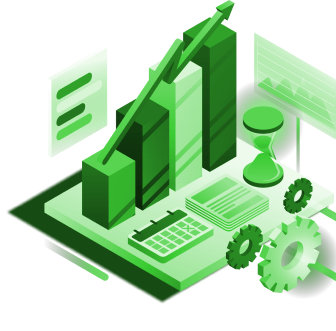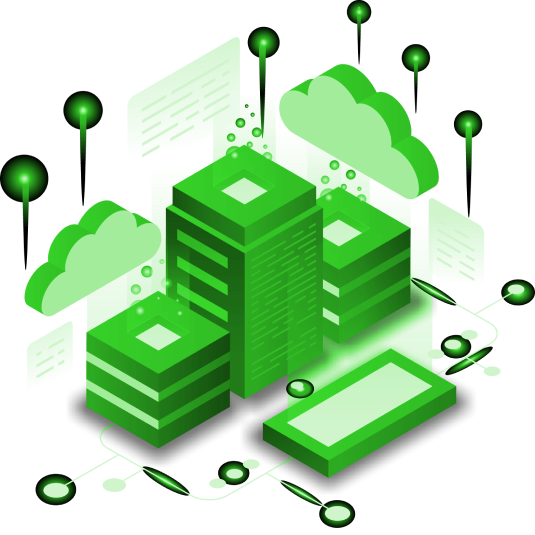Improve Your Solar Power Management with our Innovative IoT Solution

Smart solar monitoring solutions use innovative devices, diagnostics, and remote sensors to perform periodic inspections and ensure optimal performance from every solar panel.

Utilize real-time data to optimize energy production and reduce system inefficiencies, thus improving the efficiency of solar installations. System performance is greatly enhanced, and energy losses are reduced with greater monitoring.

Advanced solar monitoring systems improve control over energy production by optimizing solar panel performance parameters, reducing waste, and boosting power output.
Predictive maintenance is one of a solar monitoring system’s most important features. By the examination of both historical and real-time data, the system detects possible problems before they become serious. This proactive strategy reduces downtime and improves the probability of system failure by improving the solar panels’ lifespan.
With the help of smart integration features, solar monitoring systems of today can interact with energy management and other smart devices. Seamless interaction between inverters, solar panels, and other parts offers a more comprehensive picture of energy production and utilization.
Remote monitoring is among a solar monitoring system’s essential functions. This enables consumers to use a computer, tablet, or smartphone to monitor the operation of their solar setup from anywhere. Users can keep track of the status of their system by having access to real-time data.
Real-time data on producing energy, efficiency, and performance is given by a solar monitoring system. Data in real-time An ongoing flow of data makes it possible to quickly assess the way the system is working. Minute-by-minute energy production monitoring, performance comparison over time, and anomaly detection are all possible for users.



The solar monitoring system starts by collecting data from the solar panels, which includes metrics like energy generation, voltage, current, and temperature. Sensors attached to the panels continuously collect these parameters, offering a thorough picture of how each panel performs.

Once collected, the data is transferred to a centralized network or cloud-based platform. This frequently occurs using communication protocols such as Wi-Fi, cellular networks, or Ethernet. Data from each panel is secure and efficiently transmitted to the monitoring platform, giving remote access to performance data analysis.

The data is processed, analyzed, and turned into useful insights. Algorithms and software in the monitoring system analyze raw data to calculate energy output, performance efficiency, and potential problems.

The processed data is displayed on a user-friendly interface, enabling you to constantly monitor the state of your solar system. The dashboard shows a comprehensive picture of real-time performance, past data patterns, and detailed insights for each panel.

Solar monitoring systems may give you alerts and notifications if they discover any anomalies or problems. These notifications can be issued via email, SMS, or a mobile app, ensuring that consumers are instantly notified of any issues that require attention.

Solar monitoring systems play a vital role in improving the security of your solar energy system. These systems help in the detection of unauthorized access, tampering, and system failures by delivering real-time updates and alarms.

One of the primary advantages of a solar monitoring system is the ability to perform predictive maintenance. By continuously monitoring the performance of each panel, the system can detect trends that indicate potential issues such as reducing energy output or unusual temperature variations.

Solar monitoring systems are intended to capture large amounts of data, such as energy output, normal variables, and panel efficiency. This data is then analyzed to provide useful insights such as energy output trends, peak performance times, and system performance under different situations.

The potential of remotely monitoring the solar setup from any location is a major advantage of solar monitoring systems. Large solar farms or systems located in remote areas will find this remote access extremely beneficial as it reduces the need for on-site inspections and makes system management more convenient.

Error detection and diagnostic elements prevalent in solar monitoring systems enable the real-time identification of malfunctions or inefficiencies. In the event of a technical malfunction or panel failure, the system rapidly detects the issue and offers diagnostic information.

With the help of a solar monitoring system, you can detect faults with your solar panels early on and take action before they get worse. This early detection keeps your solar setup reliable as well as efficient by reducing downtime and averting expensive repairs.

The monitoring device helps improve overall efficiency by continually monitoring the operation of your solar panels. With the help of its comprehensive insights into each panel’s performance, you can optimize your system to produce the most energy possible.

In addition to tracking energy production, a solar monitoring system offers insightful data on trends in energy usage. Through the examination of these trends, you may determine how best to control and lower your energy consumption, which will result in additional savings.

Regular monitoring of your solar system can extend its life by ensuring timely repairs and avoiding major failures. Over time, the system monitors wear and tear to determine when certain components may require maintenance or replacement.
Real-time monitoring makes it easier to keep an eye on your solar panels' performance, detect issues early, and fix them before they reduce energy output. Quick notifications and deep analytics ensure that you are always updated on the status of your solar power system.
Through an analysis of previous data and environmental conditions, our solution can forecast the possible production of energy in the coming weeks. This device's forecasting capabilities make for improved planning, enabling users to maximize energy use when solar energy generation is at its highest.
Solar panel monitoring systems monitor each panel's efficiency regularly to ensure maximum productivity. Maintaining optimal system efficiency enables you to get the most out of your investment by producing more energy and increasing the lifespan of the panels.
The tracking system assists in optimizing energy use through comprehensive data analysis. It provides guidance on how to best match consumption with peak production times, hence minimizing dependency on external power sources, by monitoring patterns in energy generation and usage.
A solar panel monitoring system enhances the value of your return on investment. In furtherance of reducing downtime and increasing system efficiency, it enables predictive maintenance, which helps prevent expensive repairs.